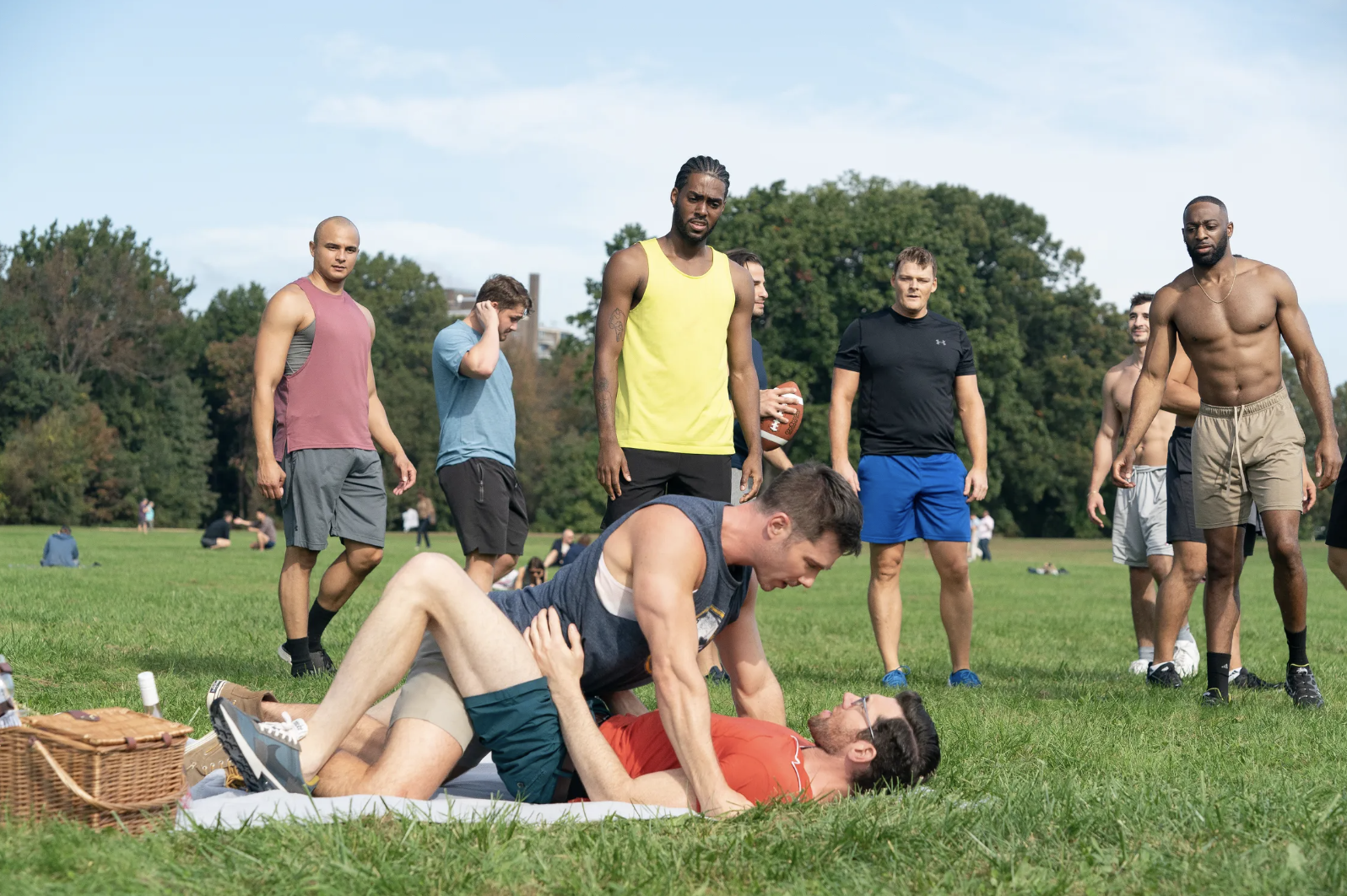OPINION: "Bros" film review: Queer people deserve happy endings
“Bros,” released Sept. 30, 2022.
Julianna Rittenberg is a sophomore studying political science and an opinion writer for The New Political.
Please note that these views and opinions do not reflect those of The New Political.
Billy Eichner's movie "Bros" was released to theaters on Sept. 30 as the first gay romantic comedy from a major motion picture studio. The film follows Eichner's character, Bobby, a podcaster and director of a new LGBTQ+ history museum, as he falls in love.
The film has received mixed reviews. While it has an 89% score on Rotten Tomatoes, the movie has faced much criticism online. Variety listed some reasons for the lackluster response to the film: October is not a normal release month for rom-coms and people tend to wait for movies to hit streaming services when the stars are relatively unknown actors.
Eichner has taken to Twitter frequently since the movie's release, responding to critics and engaging with fans. In response to questions about the negative criticism and the rough start at the box office, he is telling stories about sneaking into movie theaters and watching people's reactions.
Not only is this the first queer rom-com from a major motion picture studio, but the entire cast and crew of the movie is LGBTQ+. This is historic.
"So I thought, this is a chance not only for me to have a platform to make a movie about my story, but I want to pull up as many LGBTQ performers as I can and give them that opportunity, too," Eicnher said when asked about the decision to have an LGBTQ+ cast and crew.
For everyone involved in the movie, the immediate effects of this decision were felt when they walked on set. For many, they were usually the only or one of just a few queer people working on a project.
"To show up on set and it was just so many queer people, so many LGBTQIA-plus — all the letters people — I felt very comfortable," said TS Madison, one of the actresses in the movie and star of "The TS Madison Experience," the first reality show to be executive produced by and star a Black, trans woman. Representation like this matters for the people watching and the people who will try to make similar movies in the future.
Another star of the movie, Guy Branum, made this point on Twitter last week when asked about the lack of diversity and the criticism of the movie. He ended a long thread by stating, "until we can show Hollywood that stories by us, about us are a way of directly generating money, we will not have the opportunities, or control over our own stories that straight cis people have always enjoyed."
I went to see the movie on its release day with my two roommates. We are currently doing an internship program that focuses on LGBTQ+ representation in politics. We had just ended a day of discussing American LGBTQ+ history.
All three of us laughed. All three of us cried. All three of us felt seen.
The movie also had a running theme of discussing LGBTQ+ history. Eichner's character is the director of a new Smithsonian Museum on LGBTQ+ history and has a podcast about LGBTQ+ history. The two main characters take a trip to Provincetown, a city in Massachusetts known for its history of allyship and support.
The movie spoke on the importance of knowing your history, a luxury most queer people do not have until they are older and are able to explore it t without repercussions. The movie was cheesy, in the way the best straight rom-coms are. Do we not deserve the same?
What stood out is that this is a happy story. Queer films often center around a queer character dying, a coming out gone wrong, an attack, etc. These are real issues that should be talked about, but when it is the only media interpretation, it can be hard to picture happy endings.
When LGBTQ+ individuals lack examples of happy LGBTQ+ people, it makes it harder to picture a positive future life. It makes it harder to see yourself surviving or having a life you love. Happy queer media leads to happy, grown up queer people.
Hopefully, this will not be the end of happy queer representation in media. This week, it was officially announced that Velma is a lesbian, confirming decades of theories about the Scooby Doo character.
Representation does not end here. We deserve diverse queer stories. "Bros" had characters across the gender and sexuality spectrum: Transgender, bisexual, gay, lesbian and non-binary. This movie highlighted the importance of everyone's stories, even the side characters.
Moving forward, we need more movies where transgender people aren't only side characters. The representation does not stop with this movie. We need as many happy endings as we can get. "Bros" is a good start, but only the beginning. I am looking forward to seeing where we go from here.

